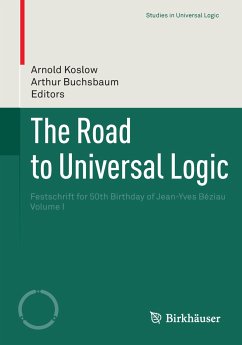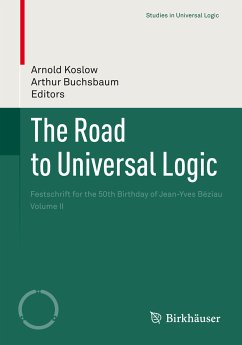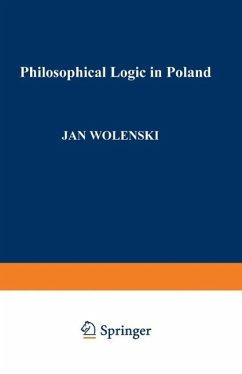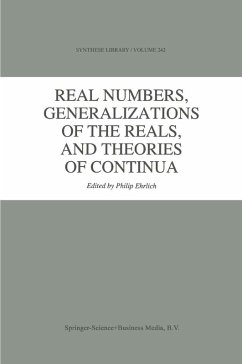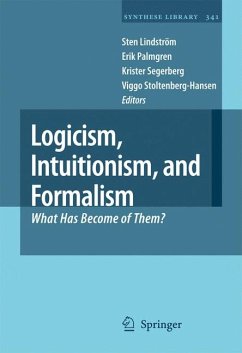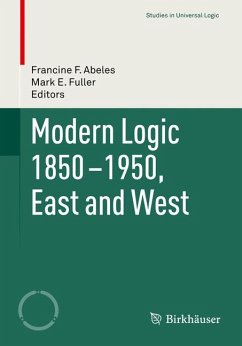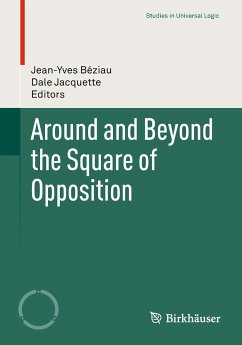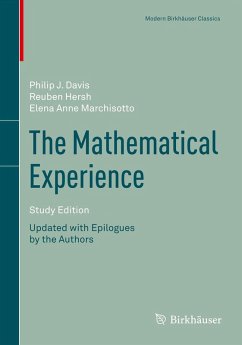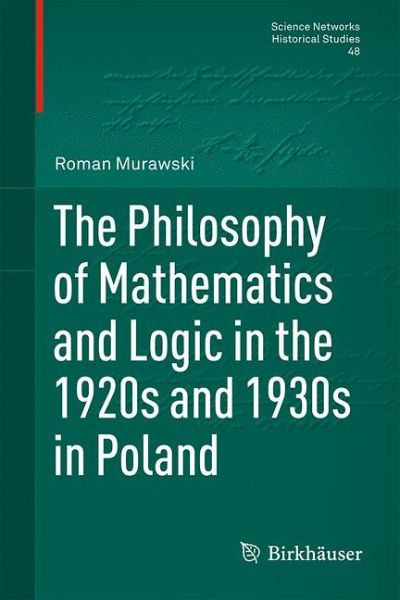
The Philosophy of Mathematics and Logic in the 1920s and 1930s in Poland (eBook, PDF)

PAYBACK Punkte
20 °P sammeln!
The aim of this book is to present and analyze philosophical conceptions concerning mathematics and logic as formulated by Polish logicians, mathematicians and philosophers in the 1920s and 1930s. It was a remarkable period in the history of Polish science, in particular in the history of Polish logic and mathematics. Therefore, it is justified to ask whether and to what extent the development of logic and mathematics was accompanied by a philosophical reflection. We try to answer those questions by analyzing both works of Polish logicians and mathematicians who have a philosophical temperamen...
The aim of this book is to present and analyze philosophical conceptions concerning mathematics and logic as formulated by Polish logicians, mathematicians and philosophers in the 1920s and 1930s. It was a remarkable period in the history of Polish science, in particular in the history of Polish logic and mathematics. Therefore, it is justified to ask whether and to what extent the development of logic and mathematics was accompanied by a philosophical reflection. We try to answer those questions by analyzing both works of Polish logicians and mathematicians who have a philosophical temperament as well as their research practice. Works and philosophical views of the following Polish scientists will be analyzed: Waclaw Sierpinski, Zygmunt Janiszewski, Stefan Mazurkiewicz, Stefan Banach Hugo Steinhaus, Eustachy Zylinsk and Leon Chwistek, Jan Lukasiewicz, Zygmunt Zawirski, Stanislaw Lesniewski, Tadeusz Kotarbinski, Kazimierz Ajdukiewicz, Alfred Tarski, Andrzej Mostowski and Henryk Mehlberg, Jan Sleszynski, Stanislaw Zaremba and Witold Wilkosz. To indicate the background of scientists being active in the 1920s and 1930s we consider in Chapter 1 some predecessors, in particular: Jan Sniadecki, Józef Maria Hoene-Wronski, Samuel Dickstein and Edward Stamm.
Dieser Download kann aus rechtlichen Gründen nur mit Rechnungsadresse in A, B, BG, CY, CZ, D, DK, EW, E, FIN, F, GR, HR, H, IRL, I, LT, L, LR, M, NL, PL, P, R, S, SLO, SK ausgeliefert werden.




